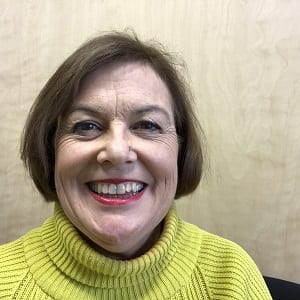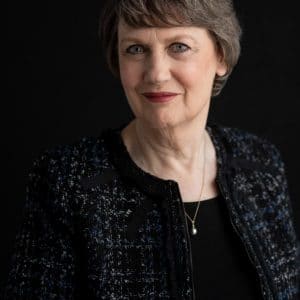We are currently experiencing two global crises - Covid-19 and Climate Change. "The difference in nature of these two global crises is striking". However, they both call for the actions of governments, businesses, and civil society. What can we do about them? What needs to happen to avert the catastrophe? In conversation with Bronwyn Hayward via video link, Helen Clark, the former Prime Minister of New Zealand, shed light on the urgent issues of our time at a session of the WORD Christchurch Festival 2021.


The conversation is based on Helen Clark's recent two works Covid-19: Make it the last pandemic and Climate Aoteroa: What's happening and what we can do about it. Serving as the Co-Chair of the Independent Panel for Pandemic Preparedness and Response last year, Helen Clark led an international team to review the globally co-ordinated response to COVID-19. In Climate Aoteroa: What's happening and what we can do about it, Clark brought together New Zealand climate scientists to examine the climate situation and its impact.
The conversation started with the current situation of COP26 Summit ( the 26th Conference of the Parties). Clark talked about her observation of different factors such as the advocacy of civil society, the US-China agreement and their commitment, Australia's coal industry, Mary Robinson's frustration with some leaders' attitude to the crisis. She analysed various factors and different opinions regarding the timeframe and plan for meeting the target of temperature increase. She concluded,
Developing a long-term relationship [between countries] to work on the issues. That is important.
When the talk moved from global to home, Clark concentrated on the book Climate Aotearoa. Using evidence drawn from chapters, she informed the audience about local conditions caused by climate change and explained the idea of neuroscience applied to the book. She stated,
It is fantastic [this book] is from the New Zealand perspective - putting out the facts about we are facing... this is an incredible book for students in tertiary institutions to read.
The idea of being relational and societal is refreshing in talks about climate change. While linking the local to the global, Clark believes that health issues are an entry point to talk about and be concerned with. She used examples of dislocation of people, diseases, water quality, and flooding caused by climate change to show the complexity of the crisis and justify her viewpoint.
For the agricultural sector, Clark believes that the key problem is the commodity-driven practice which emphasises the volume or quantity of products. A part of the solution is to reduce the quantity while increasing the quality. This is a strategic plan which leads to less water pollution and forest degradation while supporting a sustainable market.
The conversation shifted to Covid-19 when they talked about the idea of "volume". People felt lost when the big sectors of international education, agriculture, and tourism were affected by Covid-19. For Clark, there are many levels of actions, ranging from international organisations to local governments. She holds that the long-term issues should receive long-term attention.
When discussing Covid-19, they talked about vaccine manufacturing, the WHO vaccination strategy, and governments' actions. Clark raised the question of how to re-examine the system to ensure that vulnerable groups, marginalised people, and indigenous communities can be properly reached. The responsibility of G20 was highlighted when Clark further discussed the issue of inequality regarding the Covid-19 vaccination across countries. She also recognised a large amount of misinformation on Covid-19 and the vaccination in some countries. In New Zealand, many people are informed but not everyone is reached effectively.
During the Q&A period, the questions from the audience covered being a female leader in the political field, women's education, the equal opportunity of Covid vaccination in New Zealand, and responding to Covid at the local level. Clark answered these questions with evidence and examples drawn from her rich experience.
Finally, Hayward thanked the former prime minister for the global-local interconnected talk and her constant contributions to the big issues.
The audience put their hands together to show their appreciation of Clark's contributions and insights into these issues. For the audience, there were in-depth and thoughtful messages to be taken from this session. The ideas covered will help them continue the conversation wherever they go ...
WORD Christchurch
- WORD Christchurch website (for the full programme and info about authors)
- Our coverage of WORD Christchurch Festival 2021 and WORD Christchurch
- Follow WORD on Twitter, Facebook, and Instagram



Add a comment to: Helen Clark: The Big Issues: WORD Christchurch 2021